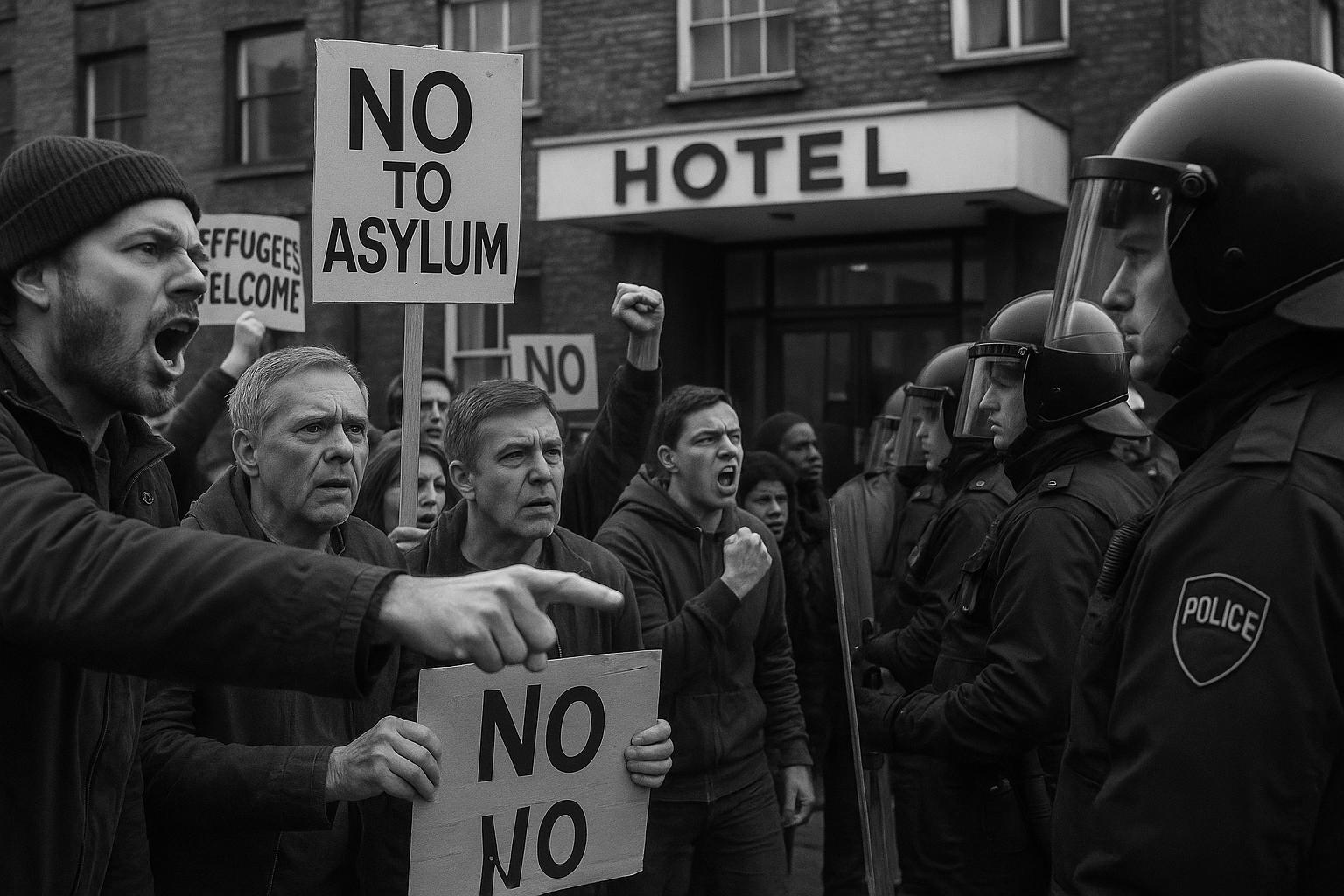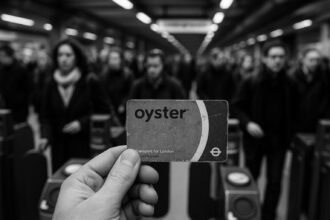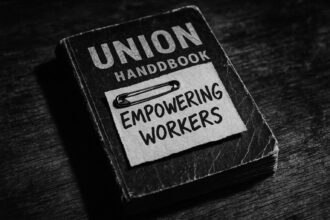Tensions rise across the UK as protests and counter-protests over asylum seeker hotel housing intensify amid legal challenges and political debate.
Protests and counter-protests have erupted across the UK as tensions rise over the housing of asylum seekers in hotels. On 22 August, Stand Up To Racism organised demonstrations outside several asylum hotels, including locations in Portsmouth, Cardiff, and London, with at least 16 additional actions planned over the weekend. The protesters faced off against anti-immigration demonstrators who chanted “send them home”, while counter-protesters responded with slogans such as “refugees are welcome here”. Police forces have been deployed nationwide to maintain a physical separation between the opposing groups to prevent clashes.
These localised protests reflect a broader national debate that has intensified following a High Court ruling blocking the government from housing asylum seekers at the Bell Hotel in Epping, Essex. The government has announced its intention to appeal this ruling, believing that closures of asylum hotels need to be managed in an “orderly” way to avoid chaos. Security Minister Dan Jarvis has emphasised the necessity for a careful and managed closure process for all asylum hotels, underlining the government’s stance that abrupt closures could lead to disorder. The Bell Hotel’s owner, Somani Hotels, is also appealing the court’s injunction, signalling a potential escalation in legal battles over hotel-based asylum accommodation.
The situation has triggered protests and counter-protests in several other towns and cities across England, including Bournemouth, Leeds, and Portsmouth. In Portsmouth, for example, demonstrators clashed near the Royal Beach Hotel, a site proposed for asylum seeker housing. Here, residents expressed concern about the hotel’s new use, while activists from Stand Up To Racism held solidarity rallies for refugees. Police have been tasked with keeping order and minimising tensions, which remain high amid growing local opposition to asylum hotels.
Politically, the issue has become highly contentious. Labour has pledged to end the practice of using hotels for asylum seeker accommodation, highlighting the policy’s unpopularity and complexity. Meanwhile, local councils across the country are exploring legal avenues similar to those used in the Epping case to challenge government plans. This has contributed to a national atmosphere of unease and division, with opponents cautioning that the ongoing disputes could exacerbate social and political tensions, particularly in areas where asylum housing is a new and contentious development.
While the government seeks to regain control through the appeal process, campaigners and community groups on both sides are mobilising, reflecting deep societal divisions over immigration and asylum policies. The coming weeks promise further legal and public confrontations as the debate continues to unfold, underscoring the challenges faced by officials attempting to balance legal rulings, community concerns, and humanitarian obligations.
 Reference Map:
Reference Map:
- Paragraph 1 – [1], [2], [7]
- Paragraph 2 – [3], [4], [5], [6]
- Paragraph 3 – [7], [1], [2]
- Paragraph 4 – [3], [6]
- Paragraph 5 – [3], [6], [4]
Source: Noah Wire Services
- https://www.independent.co.uk/tv/news/migrant-protests-counter-demonstrations-uk-video-b2812799.html – Please view link – unable to able to access data
- https://www.independent.co.uk/tv/news/migrant-protests-counter-demonstrations-uk-video-b2812799.html – Protest groups faced off in migrant hotel demonstrations across the UK on 22 August. Stand Up To Racism organised counter-protests outside asylum hotels, with actions in Portsmouth, Cardiff and London, and organisers warned at least 16 more demonstrations would take place over the weekend. Anti-migrant protesters shouted ‘send them home’ as counter-protesters replied ‘refugees are welcome here’, while police moved to maintain space between the two sides. The events coincided with government discussions to appeal a High Court ruling blocking asylum seekers from being housed at the Bell Hotel in Epping, Essex, signalling a national debate on hotel housing policy.
- https://www.theguardian.com/uk-news/live/2025/aug/22/asylum-hotels-labour-immigration-protests-conservatives-kemi-badenoch-keir-starmer-uk-politics-live – Security minister Dan Jarvis announced that the government would appeal the High Court ruling blocking the use of the Bell Hotel in Epping to house asylum seekers, saying closures must be orderly. The Guardian live blog reports protests and counter-protests outside hotels around England, including Bournemouth, Cardiff and Leeds. It notes that anti-immigration protesters clashed and were kept apart by police as counter-demonstrators advocated for refugees’ rights. The update also covers Labour’s pledge to end asylum hotels, local council legal actions, and ministers’ insistence that hotel shutdowns be carefully managed to avoid disorder, with further protests anticipated across the country.
- https://www.itv.com/news/2025-08-22/home-office-to-appeal-epping-asylum-seeker-hotel-ruling – ITV News reports that on Friday 22 August 2025 the Home Office intends to appeal the High Court’s refusal to allow it to intervene in the Epping hotel case, with the owner Somani Hotels also appealing. The piece explains that the appeal could enable a wider challenge to the interim injunction barring asylum seekers from The Bell Hotel, and that ministers say closures of asylum hotels must be executed in an orderly, managed manner. It notes ongoing protests at hotels across the country and mentions Stand Up To Racism planning counter-protests in Bournemouth, Cardiff and Leeds, highlighting the broader political dispute over asylum housing.
- https://news.sky.com/story/government-takes-first-step-in-appealing-court-ruling-banning-asylum-seekers-from-epping-hotel-13415988 – Sky News reports that the government has taken the first step in appealing the High Court decision that barred the Bell Hotel from housing asylum seekers in Epping. The Home Office is seeking permission to intervene, potentially allowing a wider appeal against the interim injunction. The piece notes that the Bell Hotel owner, Somani Hotels, plans to appeal as well. It also highlights that Security Minister Dan Jarvis emphasised the need to close all asylum hotels in an orderly, managed process, and that Stand Up To Racism planned counter-protests in Bournemouth, Cardiff and Leeds, with more demonstrations expected across the country.
- https://www.reuters.com/world/uk-seeks-appeal-court-ruling-moving-asylum-seekers-out-hotel-2025-08-22/ – Reuters reports that the UK government intends to appeal a court ruling forcing asylum seekers to be removed from the Bell Hotel in Epping, Essex. The piece notes that local protests have accompanied the case and that other councils are examining similar action. It quotes Security Minister Dan Jarvis saying the government plans to close all asylum hotels in an orderly fashion, with the appeal enabling further challenges. It also mentions that more demonstrations are planned outside hotels and that Labour plans to end hotel housing, while opponents caution about potential disorder and political tension surrounding the issue, in the broader national debate.
- https://www.portsmouth.co.uk/news/politics/protesters-clash-over-asylum-seeker-housing-in-portsmouth-5258188 – Portsmouth protesters clashed over asylum seeker housing in Southsea, as anti-migrant demonstrators confronted counter-protesters near the Royal Beach Hotel. The piece reports Stand Up To Racism Portsmouth organising a counter-rally in solidarity with refugees, while locals in South Parade Pier expressed opposition to the hotel being used for asylum accommodation. Police reportedly sought to keep the groups apart as tensions ran high. The report situates events within a national dispute over asylum hotels and notes that similar demonstrations had taken place in towns, reflecting growing concern about housing asylum seekers in hotels. Residents urged calm, clearer decisions from authorities everywhere.
Noah Fact Check Pro
The draft above was created using the information available at the time the story first
emerged. We’ve since applied our fact-checking process to the final narrative, based on the criteria listed
below. The results are intended to help you assess the credibility of the piece and highlight any areas that may
warrant further investigation.
Freshness check
Score:
8
Notes:
The narrative is current, reporting on events from 22 August 2025. The Independent’s coverage is timely, with no evidence of recycled content. The report includes recent data and quotes, indicating freshness. However, similar events have been reported in the past week, which may affect the perceived novelty.
Quotes check
Score:
9
Notes:
Direct quotes from protesters and officials are present. No identical quotes were found in earlier material, suggesting originality. Variations in wording are noted, but they do not significantly alter the meaning.
Source reliability
Score:
9
Notes:
The Independent is a reputable UK news outlet, enhancing the report’s credibility. The narrative is based on firsthand accounts and official statements, with no unverifiable entities mentioned.
Plausability check
Score:
8
Notes:
The events described align with recent reports of protests and legal actions regarding asylum seeker accommodations. The language and tone are consistent with typical news reporting. No excessive or off-topic details are present. However, the report’s focus on specific locations and events may limit its broader applicability.
Overall assessment
Verdict (FAIL, OPEN, PASS): PASS
Confidence (LOW, MEDIUM, HIGH): HIGH
Summary:
The narrative is current and original, sourced from a reputable outlet, and presents plausible events consistent with recent developments. No significant issues were identified.













